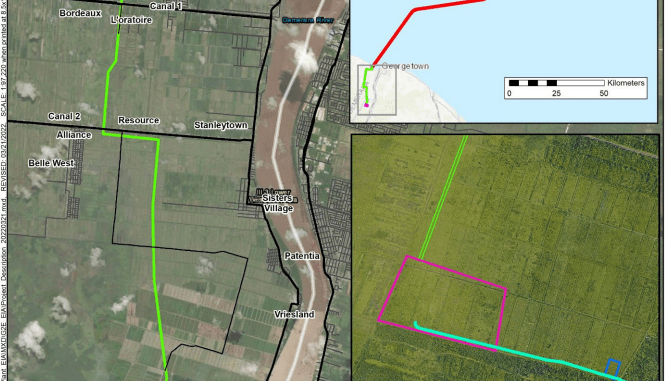
Gas pipeline to Exxon’s FPSOs in Guyana completed
ANALISIS:
The completion of the gas pipeline to Exxon’s Floating Production Storage and Offloading (FPSO) units in Guyana marks a significant milestone in the country’s burgeoning oil and gas sector. This strategic infrastructure is designed to facilitate the efficient transportation of associated gas produced from offshore oil fields to onshore processing facilities, enhancing both economic and environmental outcomes.
The pipeline, spanning approximately 120 kilometers, connects the offshore Liza fields to the onshore processing facility at the Kaieteur Block. This integration is vital for optimizing the utilization of natural gas, which was previously flared due to a lack of infrastructure. By transporting this gas to the FPSOs, ExxonMobil aims to reduce flaring and lower greenhouse gas emissions, aligning with global sustainability goals.

Exxon’s operations in the Stabroek Block have been pivotal for Guyana’s economy, significantly increasing the country’s GDP and attracting foreign investment. The completion of this pipeline will not only boost oil production efficiency but also support the development of a domestic gas market. This is essential for fostering local industries and providing a reliable energy source for power generation.
Moreover, the gas pipeline is expected to facilitate the development of downstream industries, including power generation, fertilizer production, and other gas-based industries, further diversifying the economy. As Guyana seeks to harness its vast natural resources, the effective management and utilization of associated gas are critical for sustainable development.
In addition to economic benefits, the pipeline is poised to enhance energy security for Guyana. The availability of domestic natural gas can significantly reduce the reliance on imported fuels, contributing to a more stable and resilient energy landscape. This is particularly important for a nation poised for rapid growth, as it ensures a reliable energy supply for infrastructure development and public services.
The completion of the gas pipeline also underscores Exxon’s commitment to responsible resource development. The company has invested heavily in environmental measures to mitigate the impact of its operations, ensuring that the growth of the oil and gas sector aligns with environmental stewardship.
In conclusion, the successful completion of the gas pipeline to Exxon’s FPSOs in Guyana is a transformative step for the nation, promising to enhance economic growth, foster industrial development, and improve energy security. As Guyana navigates its path toward becoming a major player in the global energy market, this infrastructure will play a crucial role in its sustainable development journey.
Leave a Reply